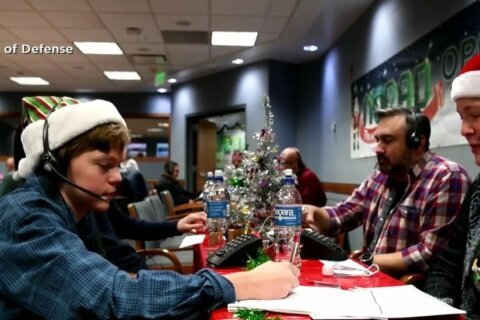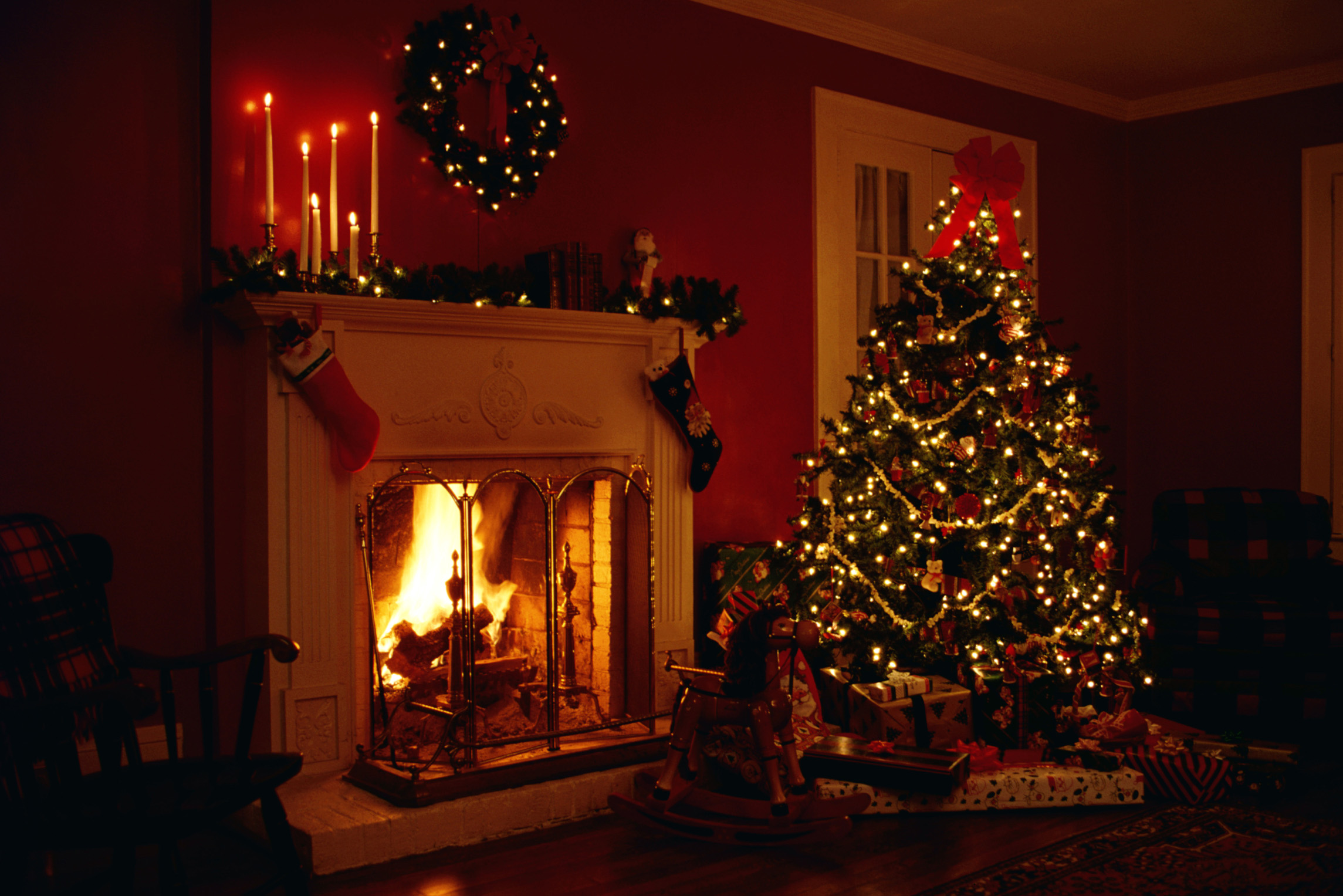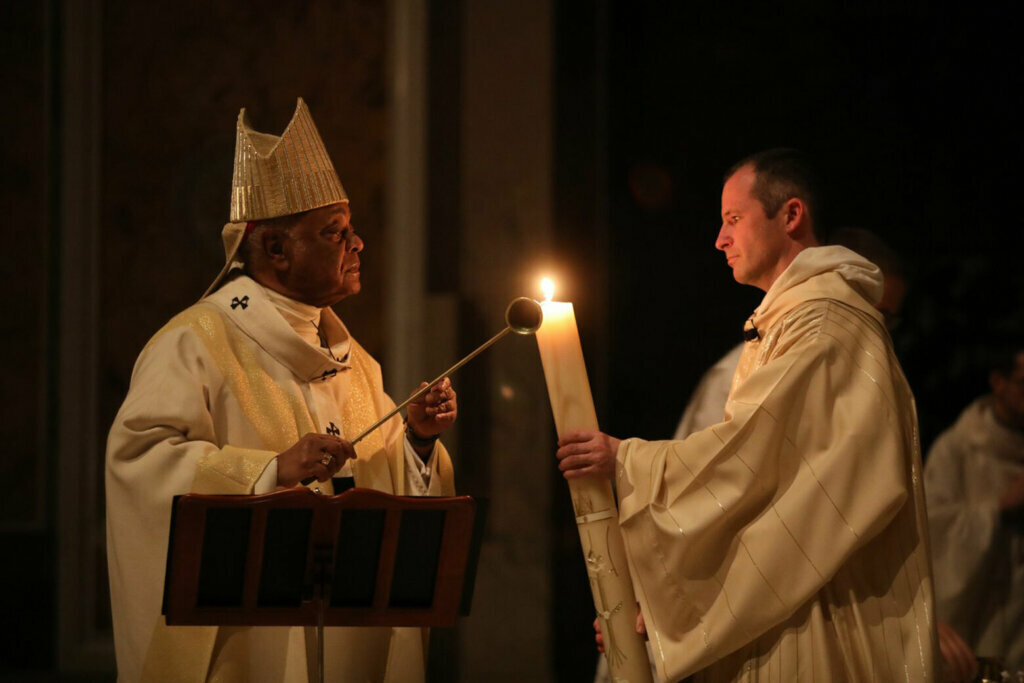
You’ve heard it a million times by now: The coronavirus pandemic has reshaped the way we celebrate the holidays.
And, yeah, it surely has. This time last year, did you anticipate Zoom-ing holiday dinners with family and friends?
But parishes in and around D.C. still want the area’s 650,000 Catholics to have a merry Christmas, celebrate Mass and contribute to their communities. Even if it’s not in a traditional manner.
“As we were beginning our plans weeks ago, we wanted to try to make Christmas as much of a celebration for our families as we do every year,” Monsignor Ron Jameson, rector at the Cathedral of St. Matthew the Apostle in the Archdiocese of Washington, told WTOP.
“Obviously, it can’t be the same. But yet we still want to connect. That’s a word I kind of use a lot these days, that we have to be able to connect with our people — and how to do that.”
For those that want to visit St. Matthew’s Cathedral in person, or attend Mass in person, that means wearing a mask, sanitizing and social distancing.
“No one can enter the cathedral without a mask on,” Jameson said. “As soon as they enter, their hands are sanitized, and then they are escorted to their pews, because we do safe distancing as well.”
Like many these days, Jameson is a fan of Dr. Anthony Fauci, director of the National Institute of Allergy and Infectious Diseases.
“I think certainly one of my big heroes right now is Dr. Fauci,” he said.
The Catholic Diocese of Arlington has been taking the same precautions to keep churchgoers safe.
“In light of the COVID pandemic, all along, we’ve been implementing protocols and procedures in line with what the Commonwealth expected and even beyond,” Bishop Michael Burbidge told WTOP.
“Our churches have been open, respectful of the social distancing that’s required. … I think we can say with confidence that they’re very safe environments.”
Those precautions are especially important during the sacrament of Communion.
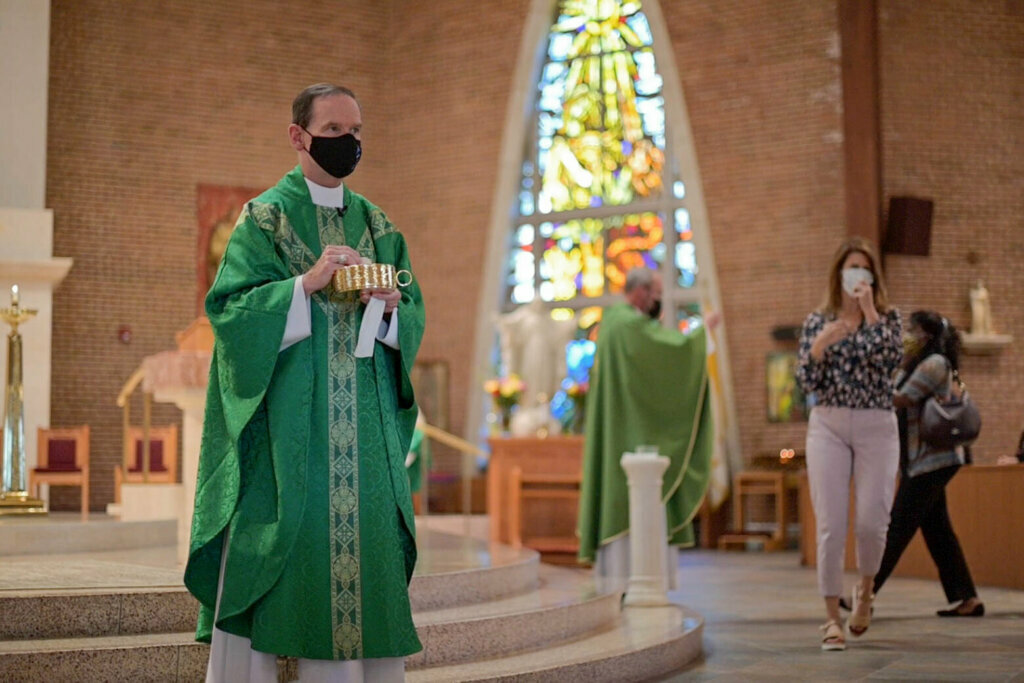
“When it comes time to receive the Eucharist, [parishioners’] hands are sanitized once again. The priests’ hands are sanitized as well. … so the precautions are there. They’re even beyond the precautions listed by the Archdiocese,” Jameson said.
Burbidge said in addition to disinfecting parishioners’ and priests’ hands during Holy Communion, the Sign of Peace, where attendees shake hands and greet each other before receiving the Eucharist, has been omitted.
Drinking from a communal chalice also is out.
“The blood of Christ would, of course, require drinking from a common chalice. So that’s not permitted during a pandemic,” Burbidge said.
The number of people attending Mass in person has dropped for obvious reasons — not the least of which is capping the number of people who can congregate in houses of worship, which D.C. Mayor Muriel Bowser eased after the Archdiocese of Washington sued — but livestreaming has been, for lack of a better term, a saving grace.
“We began livestreaming immediately, and it has continued,” Burbidge said. Additionally, he has “dispensed any of the faithful in the diocese from the obligation to attend Mass.”
“So if for some reason, physically, or someone’s compromised, or even emotionally, they’re not ready or prepared to come in to the public Mass, they’re dispensed from the obligation, but, of course, encouraged to participate virtually, and have that spiritual communion with us.”
Burbidge said that since the coronavirus pandemic started, the church has actually engaged with more parishioners than usual if you combine the number of people who have attending virtually with those that have come in person.
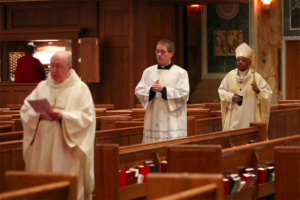
And virtual masses offer another benefit: They allow faithful who are homebound to connect.
“We also want to make sure that we’re watching out for those who are really homebound, and whether they may not be sick, they maybe just cannot get out,” Jameson said. “And so to bring that presence of Jesus in some way, whatever way we can. And I think we’re always trying to find different ways to really do that.”
Other forms of outreach St. Matthews has engaged in include calling the 2,400 households that are part of the parish, checking in on them, and wishing them a merry Christmas, Jameson said.
There are a number of ways people can contribute to their dioceses, including a host of programs through the Cathedral of St. Matthew. The Archdiocese of Washington has ways to help online for the District and Maryland. And Catholic Charities USA covers most of the D.C. region. Be sure to check the Catholic Charities, Diocese of Arlington.
“It has been incredible to see the generosity of our faithful,” Burbidge said.
“We know that in light of the pandemic, the hardships that people are experiencing, people without food, people without assurance of how they’re going to pay the next month’s rent, people whose children may be in need of food and clothing, counseling that that’s so necessary for so many people right now who are experiencing the sadness and depression.”
“And we stand ready as a Catholic Church, especially through our Catholic Charities, to provide those services to give that outreach,” said Burbidge.
One of the more difficult challenges facing church leaders during the coronavirus pandemic is how to foster hope during a time when things seem so hopeless, and in a season of togetherness when we can’t be.
“‘Comfort my people,’ said God,” Jameson said. “And I think that is so important to keep in mind. Because, as time goes on, we have to be that presence of Jesus to others, which means we have to bring hope to those around us.
We’ll get through this together and so we try our best to be that hope in many ways to others, but I do think there is a sign of hope this Christmas … there is that hope still there.”
Burbidge shares that outlook.
“God is with us. He has not abandoned us. We are in a difficult period of time. But God is with us. And God, as he has done through the ages, will lead us forward and will deliver us. And in Him, we place our hope, and our trust,” Burbidge said.
“So as believers, we can’t despair, it would be against what it means to believe in a savior. And so, we are filled, even in these difficult times, with joyful hope. And I think that Christmas reminds us that we are to be dispensers not of doom and gloom, but transmitters of joy and hope that is ours in Christ, whose birth we’re all preparing to celebrate.”



